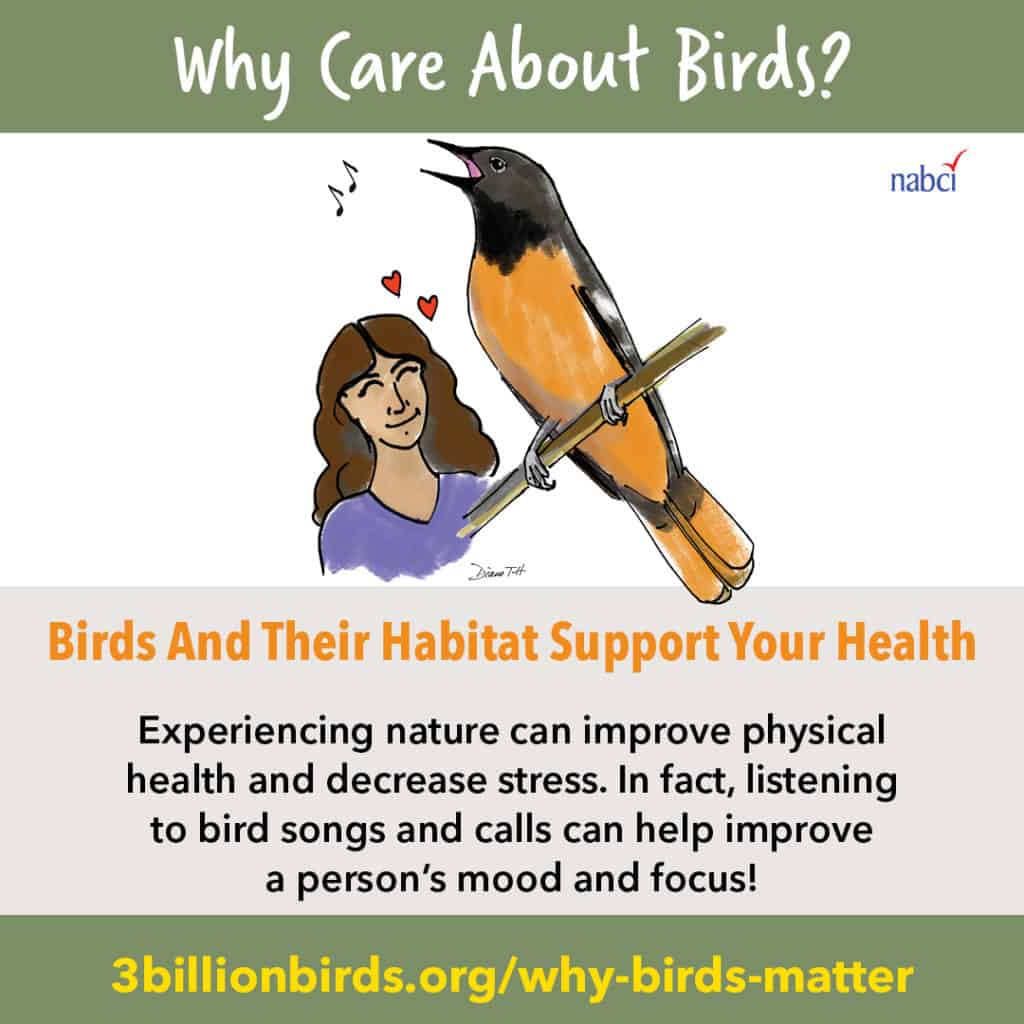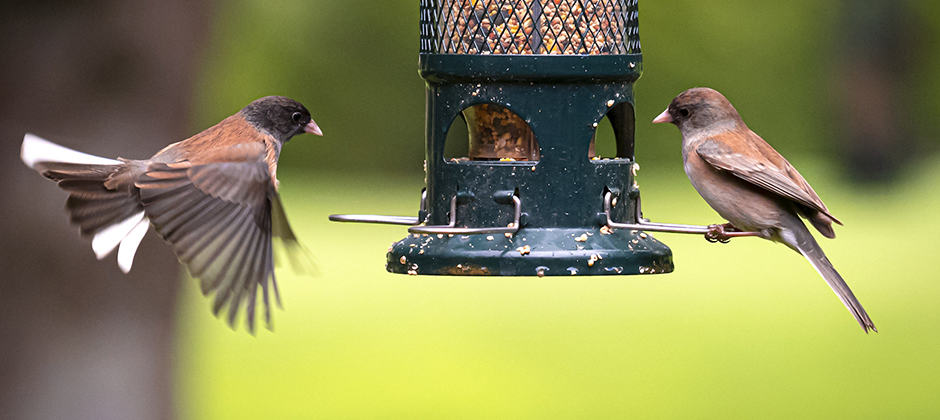Share this article
Campaign highlights birds’ benefits to humans
As people shelter at home to reduce the spread of the new coronavirus, thoughts are increasingly turning to … birds.
That’s a tiny bit of good news amid the pandemic for the members of the North American Bird Conservation Initiative. In early March, it had launched a “Why Care About Birds?” public relations campaign, until the rise of COVID-19 brought public health and economic issues to the forefront of people’s attention.
But then, in an odd way, health concerns and conservation goals came together. As the campaign was stressing the role of getting out into nature to improve physical and mental health, the public was also finding that out on its own. Stuck close to home, many people started turning to birdwatching for entertainment.
“Bird-watching is having a moment,” CNN recently reported. “Just the act of observing and listening to birdsong can lower people’s stress levels. And many birders say watching them, noting their color, their behavior, their markings as they soar from tree to tree brings them peace like yoga or any mindfulness practice.”

This Instagram graphic, designed by Cornell Lab of Ornithology Design Director Diane Tessaglia-Hymes, illustrates benefits of birds to human health. ©NABCI
That’s the sort of message NABCI had been trying to get out for years, said Judith Scarl, bird conservation program manager at the Association of Fish and Wildlife Agencies and the U.S. coordinator for NABCI, a partnership of government agencies, private organizations and initiatives working for bird conservation across the continent.
“People can’t go to zoos and can’t go to aquariums and can’t necessarily go on trips where they can see wildlife,” Scarl said. “People are turning more locally for their wildlife experiences. This is really a time where you can say, here’s something really entertaining that people can literally do in their backyards.”
The public information campaign launched with a plan to highlight five themes on why people should care about birds. Bird habitats protect clean water. They’re good for your health. They’re also good for your beverage, protecting coffee trees and vineyards from damaging pests — another theme that hits home for people stuck at home.
“Oh man, who does not want their coffee and their wine when we’re all under siege?” Scarl laughed. “That was one where we could be a little bit jokey.”
But other themes — the benefits of green space to property values and the economic boost of birdwatchers seemed a little off-key, especially with all those birdwatchers forced to stay close to home, and hotels and restaurants left empty.
NABCI may return to those themes later, Scarl said, but in the meantime, it’s the benefits to health and wellbeing that its members are emphasizing through social media and other channels.
“That’s so relevant to people right now,” Scarl said. “People are really struggling to maintain physical and mental health and get outside.”
The NABCI campaign followed a study published in Science last September that concluded that North American bird numbers fell by 3 billion over the past 50 years. Organizations, including Audubon, the American Bird Conservancy and the Cornell Lab of Ornithology, rallied together behind a campaign to #bringbirdsback, including offering “seven simple actions to help birds” that anyone could take.
“But why should any person care enough to go out of their way to take one of these simple actions?” Scarl said. “That’s where our ‘Why Care About Birds?’ campaign came in.”
The five reasons that NABCI selected are just a handful of many, she said. “There are so many examples of how birds and bird conservation benefit humans,” Scarl said. “Looking at it from that broader lens really benefits everyone — including the birds.”
Header Image:
With people stuck indoors, backyard birdwatching has given them a way to connect with the outdoors.
©Don Davidson








